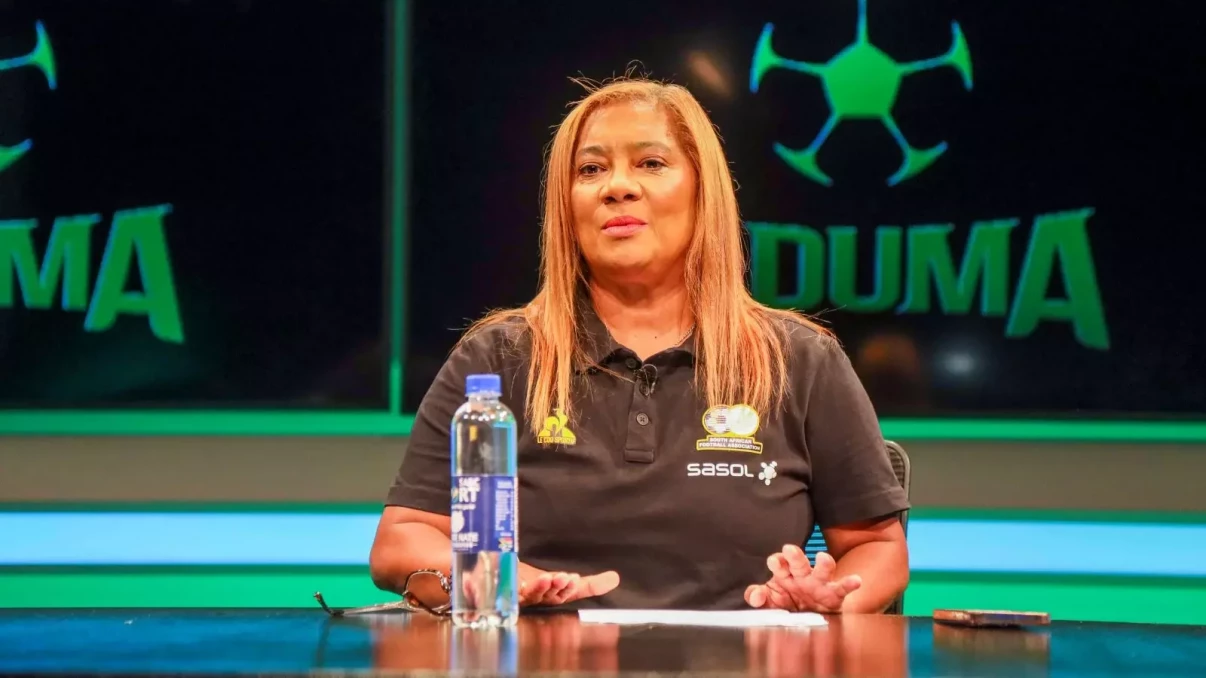Banyana Banyana coach Desiree Ellis insists it's crucial for her to mentor other female coaches.
Ellis was first appointed as an interim coach for the national team coach in 2016, taking over from Vera Paw and was officially given a permanent contract in 2018.
She has won the CAF Woman Coach of the Year four times.
In Banyana, she has worked with coaches like Thinasonke Mbuli of the University of Western Cape, SABC Sport Analyst Simphiwe Dludlu, and University of Pretoria mentor Maud Khumalo.
Ellis explains why it's important for her to collaborate with other women.
"It's important, not just in coaching but in any field that we work in to take someone with us or to assist that person in whatever it is that they want to do because we always say you don't climb the step ladder alone, you have to climb it with other people,” Ellis said.
“I feel confident in the people that I have around me. Coach Cameron [Cox] is currently in Zurich for a goalkeeper's workshop and that will obviously help us. I think it's important that I stay in contact with coaches.”
With the new season of the Hollywoodbets Super League starting in March, the 61-year-old also emphasises how important coaches in the league are for Banyana.
She says because they sometimes do not have enough time to train as a group, the work that is done by the coaches in the league can’t be overlooked.
“I just chatted with coach Maud and Coach Dunga [Nthabeleng Modiko] recently about certain things and I think it's really important that we stay in contact because we have to improve the whole of women's football not just Banyana. If the Hollywoodbets League improves, it has an impact on Banyana,” she added.
“If Banyana improves and the players go back to their club, there's an impact on the clubs so we'll do whatever we can this year to support those clubs, to stay in contact with coaches, to make sure that we help each other because we don't do it by ourselves.
“If the coaches on the ground are doing the work, it helps us because sometimes like you saw with the Denmark game, with the Jamaica game you arrive in camp, you leave three days later, you have two training sessions, you actually have two hours of training sessions where you are actually going to prepare for a team that you are going to play, who's already in camp before you get into camp.”
“Then you take the travelling into consideration. So, whatever they do in the field we cannot do without that and we are thankful and grateful for the work that they do."









